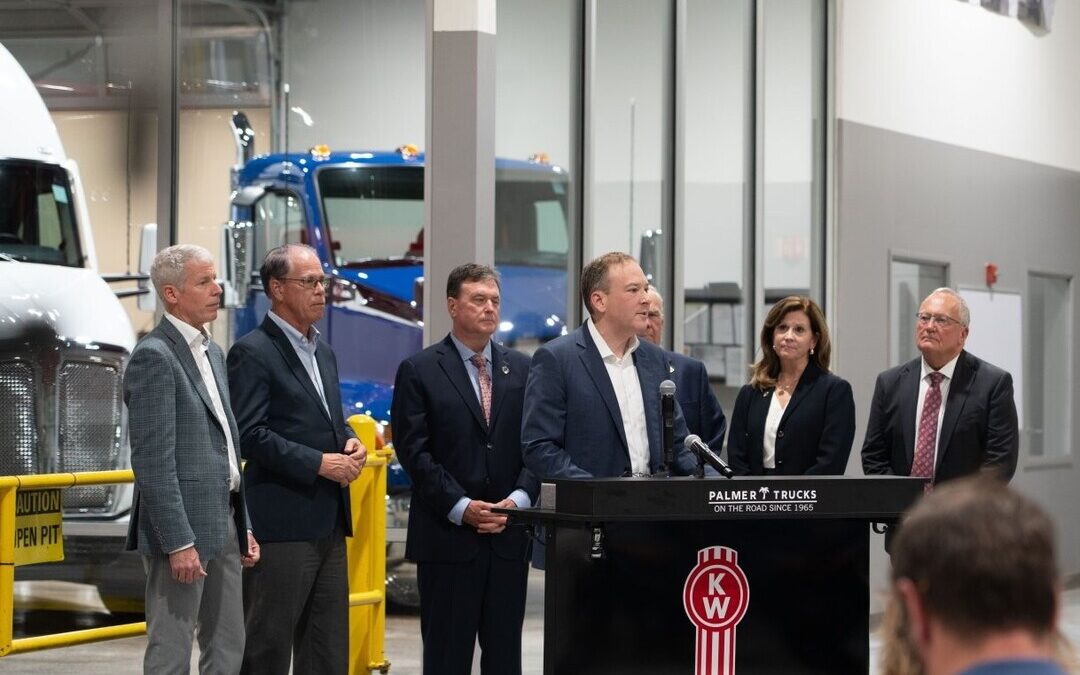EPA Proposes Repeal of Obama-Era Climate Finding, Targets EV Rules
US EPA aims to roll back climate regulations by targeting key legal basis for electric vehicle and emissions standards.
The U.S. Environmental Protection Agency on Monday proposed rescinding a 2009 legal finding that braced decades of greenhouse gas regulations, including the Biden administration’s electric vehicle mandates, in a sweeping move that could reshape federal climate policy and auto industry standards.
The proposal, announced by EPA Administrator Lee Zeldin at an Indiana auto dealership, seeks to repeal the Obama-era “Endangerment Finding,” a foundational decision that allowed the agency to regulate greenhouse gas emissions from cars and trucks under the Clean Air Act.
If finalized, the measure would eliminate emissions rules covering light-, medium- and heavy-duty vehicles, potentially unraveling more than $1 trillion in regulations. The EPA estimates the repeal would save Americans more than $54 billion annually.
“In our work so far, many stakeholders have told me the Obama and Biden EPAs twisted the law, ignored precedent, and warped science to achieve their preferred ends,” Zeldin said, in a statement.
Trump Administration Reverses Climate Policy
Secretary of Energy Chris Wright, Indiana Governor Mike Braun, and other state and federal Republican officials joined Zeldin.
The proposal is part of a broader deregulatory push under President Donald Trump’s second term aimed at rolling back climate-focused rules and promoting domestic energy production.
Wright called the announcement “a monumental step” toward returning to “commonsense policies” that prioritize affordable energy.
The move marks a clear break from the Biden administration’s policies, which relied heavily on emissions standards and EV mandates to curb climate change.
The Endangerment Finding, issued in 2009 during President Barack Obama’s tenure, concluded that greenhouse gases, including carbon dioxide, pose a risk to public health and welfare. That determination gave EPA the authority to regulate vehicle emissions under Section 202(a) of the Clean Air Act.
Scientific Basis Challenged
The EPA said it is relying on updated scientific and economic data, including a 2025 study by the Department of Energy’s Climate Work Group, to justify the repeal.
The agency argues that the 2009 decision overreached by grouping six greenhouse gases without evaluating their impact.
Critics have long warned that the regulations imposed massive costs on automakers and consumers.
EPA officials said Monday the Endangerment Finding served as the legal basis for seven separate vehicle rules, including the much-criticized start-stop systems in cars and heavy-duty truck mandates.
Industry, GOP Officials Back Repeal
Supporters of the rollback, including Republican lawmakers and industry groups, praised the move as a win for consumer choice and economic growth.
“The EV mandate put the trucking industry on a path to economic ruin,” said Chris Spear, CEO of the American Trucking Associations. “We thank the Trump administration for returning us to a path of common sense.”
Small Business Administration chief Kelly Loeffler said rescinding the finding would save small businesses at least $170 billion and help end what she called “the Obama-Biden green new scam era.”
Indiana Governor Mike Braun, a longtime critic of federal climate regulations, said the proposal is a win for states’ rights and the auto industry.
Legal, Regulatory Hurdles Remain
Environmental advocates are expected to challenge the proposed repeal in court, arguing that it ignores established climate science and undermines U.S. obligations to reduce emissions.
Legal analysts said the move may hinge on recent Supreme Court rulings that restricted agencies’ ability to make sweeping policy changes without explicit congressional authorization.
Key decisions cited by the EPA include West Virginia v. EPA, which limited the agency’s authority to regulate power plant emissions, and Loper Bright Enterprises v. Raimondo, which curtailed judicial deference to agency interpretations.
The EPA said it will open a public comment period on the proposal, with further details to be published in the Federal Register.
Nirmal Menon
Related posts

Subscribe
Error: Contact form not found.


